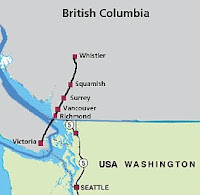In 2011 greener vehicles were one of the driving forces behind the growth of US cleantech. We expect to see the habitual greentech drivers like solar and wind, but in 2011 we also saw tremendous growth in EVs and hybrid cars in the US.
Green vehicles are one of the more popular green technologies. In 2011 Chevrolet released the Volt and this was one of the vehicles that helped General Motors (GM) regain its position as the world's largest automaker. The renewed success of GM is providing jobs for Americans.
These greener vehicles are having significant impacts outside of the automaking industry. New partnerships and collaborations are being formed to do things like provide refueling services for this new generation of vehicles.
In 2011 cleantech companies opened new facilities and provided hundreds and thousands of new green jobs. This is particularly important given the fact that the effects of the recession are still being felt in the US.
As these new jobs came online they helped to contribute to declining unemployment numbers. The unemployment rate remained around 9 percent in the US throughout much of 2011, it has now fallen to just over 8 percent and greener vehicles are an important part of that improving employment picture.
© 2012, Richard Matthews. All rights reserved.
Related Posts
Cleantech Partnerships and Collaborations
California and Other US Leaders in Cleantech Investments
Leading US Cleantech Investment Sectors in 2011 Q3 and Q4
VC Investment in US Cleantech in 2011
2012 to be the Best Year Ever For Clean-Tech Investment?
US Regains Lead from China as Clean Energy Leader
China is Leading in terms of Renewable Energy Attractiveness
Green vehicles are one of the more popular green technologies. In 2011 Chevrolet released the Volt and this was one of the vehicles that helped General Motors (GM) regain its position as the world's largest automaker. The renewed success of GM is providing jobs for Americans.
These greener vehicles are having significant impacts outside of the automaking industry. New partnerships and collaborations are being formed to do things like provide refueling services for this new generation of vehicles.
In 2011 cleantech companies opened new facilities and provided hundreds and thousands of new green jobs. This is particularly important given the fact that the effects of the recession are still being felt in the US.
As these new jobs came online they helped to contribute to declining unemployment numbers. The unemployment rate remained around 9 percent in the US throughout much of 2011, it has now fallen to just over 8 percent and greener vehicles are an important part of that improving employment picture.
© 2012, Richard Matthews. All rights reserved.
Related Posts
Cleantech Partnerships and Collaborations
California and Other US Leaders in Cleantech Investments
Leading US Cleantech Investment Sectors in 2011 Q3 and Q4
VC Investment in US Cleantech in 2011
2012 to be the Best Year Ever For Clean-Tech Investment?
US Regains Lead from China as Clean Energy Leader
China is Leading in terms of Renewable Energy Attractiveness







